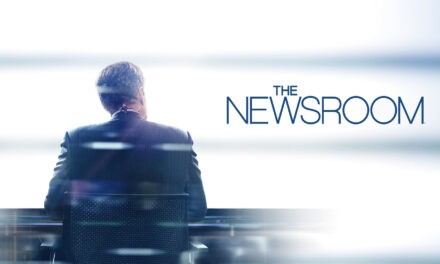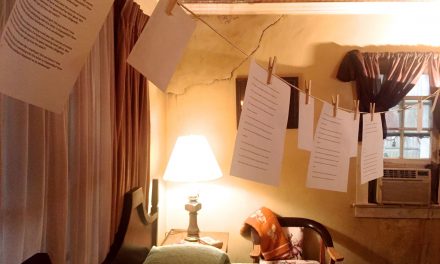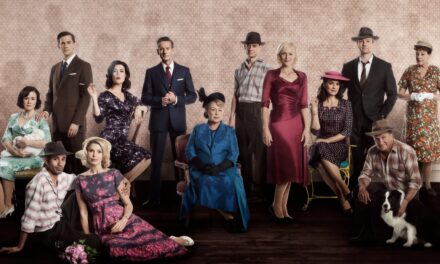Application period is extended for the 2022 CNRS Thematic School “Moral and Social Issues in Television Series,” organized by the ISJPS (UMR 8103 CNRS/Paris 1 Panthéon-Sorbonne), with the support of the ERC DEMOSERIES and in partnership with the Institut ACTE (EA 7539/Paris 1 Panthéon-Sorbonne), La Fémis, and the University Gustave Eiffel.
Location: Villa Clythia – CAES du CNRS, Fréjus, Var, France
Dates: Sunday, July 3, 2022 – Saturday, July 9, 2022
*Updated Application Deadline: March 31, 2022
Project Description:
“Winter is coming…” A phrase known almost everywhere in the world. A phrase that has brought families and friends together in front of a television, computer, tablet, or smartphone screen. A phrase that raised the issue of downloads and intellectual property when it comes to television series. A phrase that trivialized the term “spoiler” and kept millions of people in suspense for years, before ending in a veritable war of opinions. Originally the motto of House Stark in Game of Thrones, the phrase marks the explosion of television series that began in the 2000s. Whereas popular culture was once dominated by literary, musical, and cinematic references, now the series occupy an increasingly prominent place.
Echoing this development, scholars from various disciplines such as history, philosophy, information and communication sciences, political science, sociology, cultural studies, etc. have produced a growing number of writings on television series. However, series are still too often considered as a secondary cultural form and are referenced only in passing. Yet they raise major issues, both in terms of content and form, as well as their moral, social, and political impact. It is therefore time to make television series an object of scientific analysis that takes into account the phenomenon’s multidimensionality. It is also time to consolidate the research community that is already working on series and which, for the moment, still appears to be largely fragmented. These are the objectives of the Thematic School “Moral and Social Issues of Television Series”.
The School therefore proposes to consider the whole life span of a TV series, from its creation and production to its distribution and reception, by taking an innovative and multidimensional approach fostered through interactions and conversations with both researchers and practitioners.
The School is organized around six days of multidisciplinary training, featuring both professional and academic speakers, with the aim of encouraging participants to build a global view of TV series in the field of social, political, and media sciences. The theoretical premise here is that such a research object requires specific resources and a radical change in methods: namely, ethical and political analysis, as well as a “particularistic” ethics rooted in attention to human expressions and emotions, both in the complexity of characters and situations and in the plurality of ethical positions made available to us through our intimate relationship with the television series that have become part of our daily lives. It is about fully grasping the political, societal, cultural, and aesthetic meanings of series, as well as their central role in shaping contemporary values and our understandings of the world.
The ambition of the project is also to focus on “popular culture” as a moral resource, which leads to rethinking the links between culture and democracy. In continuation with the work of John Dewey, Stanley Cavell, and others on the personal experience of individuals and its resonance through cinema and TV series, we will explore how popular culture is neither primitive nor minor, but rather democratic in the sense that, by creating shared resources, it contributes to the education of the public of all ages.
By considering the experience – sometimes private, sometimes collective – of series, we plan to highlight the moral reflection opened to the spectator in the viewing process: through the choices staged by series; disputes, negotiations, and agreements; the trajectories of the characters; narrative turns and arcs; plot twists, etc.
The Thematic School “Moral and Social Issues in Television Series” proposes to present the process of series’ creation by having discussions with professionals from the world of series on topics ranging from the screenwriters’ inspirations to the aesthetic choices of the directors.
The School will also offer an opportunity to discuss together the passions that drive the series’ viewers. Between “fanfictions” that engulf us to the conventions that place series in the spotlight, or even the differences of opinion on this or that production, the series appear as important markers of the divisions and social struggles that are emerging in the contemporary world. In the aftermath of the murder of George Floyd, how are we talking about African Americans and the Black Lives Matter movement? Have feminist series changed the situation for women? Do security series educate us in geopolitics? How are series impacted by the Covid pandemic? Are they used to forget or, on the contrary, to awaken and remember?
Finally, the Thematic School will address the question of the relationship between culture and capital, even though these numerous and complex series are largely financed and distributed by companies which above all follow the capitalist logic: how much leeway do the creators have? To what extent can series criticize the economic system that serves as their matrix? And with what effects?
Pedagogical Organization
The training offered by the School will be conducted by specialists in the field with the support of professionals in the sector. An important place will be given to exchanges with the participants.
The mornings will be devoted to a multidisciplinary program of lectures:
- The evolution of TV series and the evolution of the main genres of series.
- The process of creating a series.
- The TV series industry and market around the world.
- The ethics of TV series, from the moral itineraries of the characters to the values they transmit.
- Series as tools for democratic struggle and raising awareness of major social issues. Series and criticism of the capitalist and media world.
- The serialization of reality, from media discourse to the impact on audiences.
The afternoons will include workshops (sequence analyses, writing workshops, etc.) and discussion sessions. The evening will be reserved for the screenings of series episodes and debates. Some programming will be in English, but the majority will be in French.
Terms of Participation
Participation is subject to the selection process contingent on place availability (30 participants maximum). There are no prerequisites for registering, other than the desire to consider series as a serious object of study and familiarity with a certain number of series. Eligible to apply: young or established researchers, doctoral students, teachers, engineers, practitioners, technicians, whatever their field of specialty, who are already working with or wish to work on studying or creating TV series. We are counting on the selected candidates to introduce others to their favorite series during the exchanges.
Selection Criteria
The selection by the scientific committee will be based on the motivation statement provided in the application form. The candidates must address their interest in studying TV series and, where applicable, the nature of their research or creative work. We particularly welcome applications from foreign candidates and applicants with varied areas of expertise, in accordance with the objectives defined by the Thematic School.
Dates
Applications must be submitted by March 31, 2022, by email to the following address: contact@demoseries.eu.
Candidates will be informed of the results no later than Tuesday, April 12, 2022.
Terms of Stay
Registration fees include full board accommodation from afternoon on July 3 to noon on July 9, participation in the School, and teaching materials.
Sanitary measures will follow the guidelines of the host institution and the governmental rules and regulations in place at the time of the event.
Registration Fees:
CNRS agents: fee covered by the CNRS
PhD students: €200. Doctoral students are encouraged to request funding from their doctoral school to cover the registration fee and the cost of transportation.
Participants from other institutions: €400
Download the Application form
All additional inquiries should be directed to: contact@demoseries.eu




